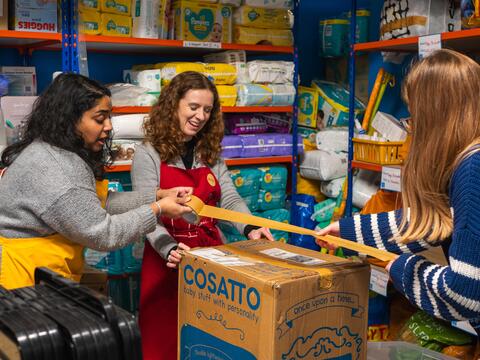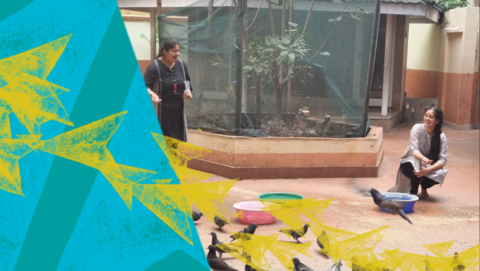As an Enter & View volunteer, you will collect evidence of what works well and what could be improved in health and social services to improve people’s experiences. Healthwatch can use this evidence to make recommendations and inform changes.
Healthwatch have a statutory function to carry out Enter & View visits to health and care services to review services at the point of delivery. This involves visiting with a team of representatives to observe the service, view the premises and talk to staff, patients/residents, carers, and relatives. Visits involve using all the senses and going through questions and surveys. Enter & View visits take place at a range of services such as hospital wards, community clinics, care homes, support groups, and many other Health and social care service providers in Waltham Forest. You will receive full training on how to perform an Enter & View visit.
- If you have worked or volunteered in health and social care, it can be a chance to share your experience and knowledge.
- If you have not been in a professional setting for a while, volunteering can be a great way to develop confidence in this area.
- It is an opportunity to meet new people, make friends and develop communication and interpersonal skills.
- It can be an opportunity for networking at community events and finding out about future opportunities.
- Learn more about health and social services.
- Develop qualitative research skills.
- Learn how to organize your findings in a report.
- Learn how to have your say and share your views.
- We believe that everyone is unique and has something valuable to contribute, from sharing life experiences, skills, and knowledge, to the willingness to make a real difference in society.
- You do not need any qualifications to volunteer with us. Prior life or work experience from within a health and social setting would be beneficial but not essential!
- Before starting the role you will go through an essential training and DBS checks.
Similar Opportunities

As a Hosting Volunteer you’ll be working with the rest of the hosting team to create a warm, welcoming environment for our guests. By serving our guests a free, delicious meal and sharing in conversation, you'll be helping to reduce hunger and loneli

We are dedicated to improving the emotional wellbeing of vulnerable young people. Free To Be supports children who have experienced complex disadvantage to change their stories, through therapeutic adventures and the power of the outdoors.

We are dedicated to improving the emotional wellbeing of vulnerable young people. Free To Be supports children who have experienced complex disadvantage to change their stories, through therapeutic adventures and the power of the outdoors.




